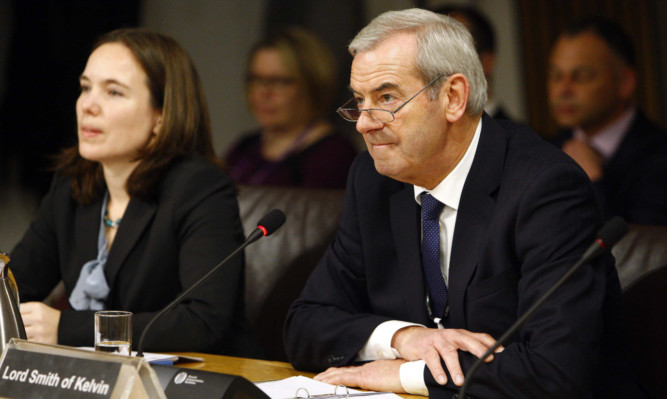Businesses, financial experts and trade unions strongly rejected proposals to give Holyrood control over corporation tax, according to the architect of devolution.
Scottish politicians were told to stop coveting their neighbour’s “bag of sweeties” by Lord Smith of Kelvin, with Northern Ireland expecting an announcement on the devolution of corporation tax to Stormont in today’s Autumn Statement.
It came as Deputy First Minister John Swinney reiterated the Scottish Government’s dissatisfaction with the amount of powers heading north under proposals in the Smith Commission.
Lord Smith had earlier told Holyrood’s Devolution Committee that a broad spectrum of Scottish society told the gathering of MSPs he chaired “Do not tinker with corporation tax”.
He added: “There was a very strong view out there, never mind what politicians were saying round the table, to not interfere there.
“We were aware of rumours that there might be corporation tax going to Northern Ireland. This is where a chair steps into his own.
“I said ‘Remember what we said about this being unconditional on political negotiations elsewhere in the UK. If it is right for us to devolve corporation tax to Scotland let’s talk about that and how it would happen and so on’.”
In a statement to parliament, Perth and North Perthshire MSP Mr Swinney welcomed the content of the proposals before adding the agreement had been greeted with “widespread disappointment”.
The Finance Secretary welcomed the devolution of air passenger duty, more extensive power over income tax, a range of benefits and the power to extend the Scottish voting franchise to 16 and 17-year-olds.
However, he hit out at employment law, health and safety, trade union law, the minimum wage, immigration, variable capital allowances, child support and equality law remaining reserved to Westminster. Mr Swinney said: “The proposals mean control over 71% of taxes in Scotland remains at Westminster, along with 85% of welfare decisions including the conditions and sanctions that are causing so much distress in our country.”
Labour’s commission member Iain Gray pointed out control over income tax rates was being devolved.
Former Conservative leader Annabel Goldie dismissed the SNP reaction as “predictable”.
Liberal Democrat leader Willie Rennie said: “The Government could embrace these new powers, these new radical powers for Scotland.
“Or is (Mr Swinney) just going to forever rerun the referendum that he just lost.”
